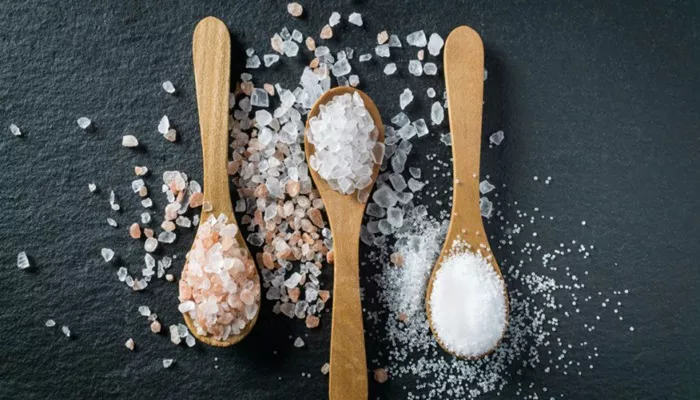Sodium is an essential mineral that plays a crucial role in various bodily functions. It helps maintain fluid balance, supports nerve function, and aids in muscle contractions. However, the body only needs a small amount of sodium to perform these functions effectively. The recommended daily intake of sodium for an average adult is around 2,300 milligrams, roughly equivalent to one teaspoon of salt. Unfortunately, the modern diet often far exceeds this recommendation, leading to health issues, particularly concerning blood pressure.
Understanding Blood Pressure
Blood pressure is the force exerted by circulating blood against the walls of the body’s arteries. It is measured in millimeters of mercury (mmHg) and recorded as two numbers: systolic pressure (the pressure when the heart beats) over diastolic pressure (the pressure when the heart rests between beats). A normal blood pressure reading is typically around 120/80 mmHg. Consistently high blood pressure, or hypertension, can lead to severe health complications, including heart disease, stroke, and kidney failure.
SEE ALSO: How Does Hypertension Cause Neck Pain?
The Link Between Sodium And Blood Pressure
Extensive research has established a direct link between sodium intake and blood pressure levels. High sodium consumption can lead to increased blood pressure, a condition known as hypertension. The mechanism behind this involves several physiological processes:
Fluid Retention: Sodium attracts and holds water. When you consume too much sodium, your body retains extra water to dilute the sodium in your bloodstream. This increased volume of fluid in the blood vessels raises blood pressure.
Vascular Resistance: High sodium levels can cause the walls of small arteries to constrict, increasing vascular resistance.
This constriction forces the heart to work harder to pump blood through these narrower pathways, leading to higher blood pressure.
Hormonal Regulation: Sodium intake affects the balance of hormones such as aldosterone and antidiuretic hormone, which regulate blood pressure by controlling sodium and water levels in the body. High sodium intake can disrupt this balance, contributing to hypertension.
Dietary Sources of Sodium
The primary source of sodium in the diet is salt (sodium chloride). Processed and packaged foods are significant contributors to high sodium intake, as salt is commonly used as a preservative and flavor enhancer. Some common high-sodium foods include:
Processed meats (bacon, ham, sausages)
Canned soups and vegetables
Snack foods (potato chips, pretzels)
Fast food and restaurant meals
Frozen dinners and ready-to-eat meals
Sauces, dressings, and condiments (soy sauce, ketchup, salad dressings)
Epidemiological Evidence
Numerous epidemiological studies have demonstrated a strong correlation between high sodium intake and elevated blood pressure.
For example, the INTERSALT study, which involved over 10,000 participants from 32 countries, found a direct relationship between sodium intake and blood pressure levels. Populations with low sodium intake, such as the Yanomami Indians of Brazil, exhibited very low incidence of hypertension, whereas populations with high sodium consumption showed higher prevalence rates of hypertension.
Clinical Trials And Sodium Reduction
Clinical trials have further supported the benefits of sodium reduction on blood pressure. The DASH (Dietary Approaches to Stop Hypertension) study is one of the most well-known trials in this area. It demonstrated that a diet low in sodium, combined with a high intake of fruits, vegetables, and low-fat dairy products, significantly reduced blood pressure in participants. The DASH-Sodium trial, a follow-up study, specifically examined the effects of varying levels of sodium intake and confirmed that lower sodium intake led to substantial reductions in blood pressure.
Mechanisms of Sodium-Induced Hypertension
The pathophysiological mechanisms through which sodium affects blood pressure are complex and multifaceted. Some key mechanisms include:
Renal Handling of Sodium: The kidneys play a central role in regulating sodium balance and blood pressure. When sodium intake is high, the kidneys initially excrete more sodium to maintain balance. However, chronic high sodium intake can overwhelm the kidneys’ ability to excrete sodium, leading to sodium retention and increased blood volume.
Endothelial Dysfunction: High sodium levels can impair the function of the endothelium, the inner lining of blood vessels. This dysfunction reduces the vessels’ ability to dilate, increasing vascular resistance and blood pressure.
Sympathetic Nervous System Activation: Excessive sodium intake can activate the sympathetic nervous system, leading to increased heart rate and vasoconstriction, both of which elevate blood pressure.
Oxidative Stress and Inflammation: High sodium levels can promote oxidative stress and inflammation within the cardiovascular system. These processes contribute to vascular damage and stiffening, further increasing blood pressure.
Public Health Recommendations
Given the clear link between high sodium intake and hypertension, various public health organizations have issued guidelines to help reduce sodium consumption. These recommendations include:
Reading Food Labels: Checking the sodium content on food labels can help individuals make informed choices and select lower-sodium options.
Cooking at Home: Preparing meals at home allows for better control over the amount of salt used in cooking.
Reducing Processed Foods: Limiting the intake of processed and packaged foods, which are often high in sodium, can significantly reduce overall sodium intake.
Using Herbs and Spices: Enhancing the flavor of food with herbs, spices, and other seasonings instead of salt can help reduce sodium consumption.
Choosing Fresh Ingredients: Opting for fresh fruits, vegetables, and lean meats over canned or processed alternatives can lower sodium intake.
Impact of Sodium Reduction on Blood Pressure
Reducing sodium intake can have a profound impact on blood pressure levels. Studies have shown that even modest reductions in sodium intake can lead to significant decreases in blood pressure. For example, reducing sodium intake by 1,000 milligrams per day can lower systolic blood pressure by approximately 5 mmHg in individuals with hypertension.
Conclusion
The relationship between sodium intake and blood pressure is well-established, with high sodium consumption being a significant risk factor for hypertension. Understanding the sources of dietary sodium and implementing strategies to reduce intake can help manage and prevent high blood pressure. By making informed dietary choices and adopting healthier eating habits, individuals can significantly improve their cardiovascular health and reduce the risk of hypertension-related complications.

